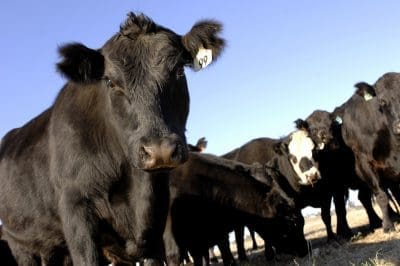Australia’s government biosecurity personnel now have greater access to professional development and training through two qualifications developed as part of the Biosecurity Emergency Response Training Australia (BERTA) training and assessment materials project.

Images taken on “Gundillawah” near Adelong NSW. Ian and Fiona Horsley who have Sheep Cattle and crops on their property. Ian breds Herefords and Fiona breeds Angus cattle. Arthur Mostead Photographer, AM Photo Library 0428 627 880.
The Certificate IV in Public Safety (Biosecurity Response Leadership) and the Diploma in Public Safety (Biosecurity Response Management) provide a clear pathway for personnel to lead biosecurity emergency response efforts across all sectors.
“A biosecurity emergency response is about having the right resources and strategy, and most importantly it’s about having the right people in the right roles,” said Peter Day, NSW Department of Primary Industries Acting Group Director, Emergency Operations, Intelligence and Programs.
“Any kind of emergency response is a challenging work environment, and the more people we have trained and prepared to step into that situation and provide leadership, the better.”
The BERTA Project represents three years of collaboration between the Australian Government, state and territory governments, Tocal College, Animal Health Australia (AHA) and Plant Health Australia.
“We’re excited to make the Certificate IV and Diploma qualifications available to government biosecurity staff across Australia, ensuring there are consistent and high quality training and resources available to further develop their skills,” said Tocal College Principal Darren Bayley.
“We’re also pleased to say that, through the ‘skill set’ model, personnel are able to receive training which is highly relevant to their likely role within a coordination or control centre. AHA has managed the BERTA Project on behalf of all participants.
AHA CEO Kathleen Plowman explained that the development and availability of these qualifications has greatly enhanced the capabilities of the national biosecurity system.
“With this phase of the BERTA Project coming to a close, our focus will be turning to how we continue to support the jurisdictions in developing their people,” Ms Plowman said.
“We want to thank everyone who has been involved up to this point, and we look forward to offering our continued support to developing national biosecurity trainers and the National Biosecurity Response Team, of which both groups utilise the BERTA materials.”
AHA supports emergency animal disease and biosecurity training managers across jurisdictions, enabling collaboration and sharing of knowledge and experience, while the National Biosecurity Response Team is a cohort of highly skilled professionals who can lend their skills to a biosecurity emergency response.
Both BERTA and NBRT work to build biosecurity emergency response capability and capacity nationwide
Source: AHA
